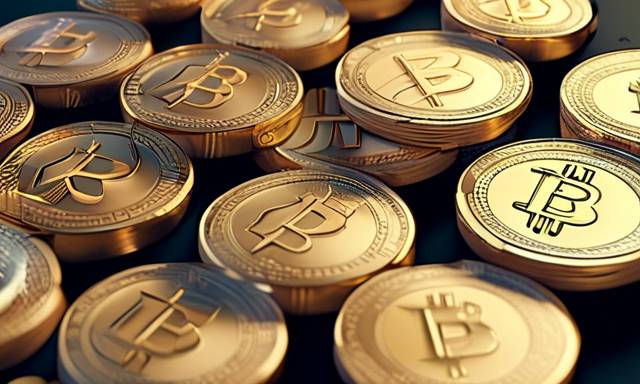Understanding the UK’s New Approach to Digital Assets ⚖️
This summary emphasizes the UK government’s initiative to legally recognize cryptocurrencies and non-fungible tokens (NFTs) as personal property. By implementing the Property (Digital Assets etc.) Bill, the aim is to enhance the protection and clarity surrounding digital assets, providing necessary safeguards against fraud and aligning legal frameworks with technological advancements.
A Major Legislative Change 📜
The UK government has taken a monumental step to define the legal status of digital currencies and NFTs by unveiling the Property (Digital Assets etc.) Bill. Introduced to Parliament on September 11, 2024, this draft legislation aims to categorize digital assets as personal property, placing them alongside traditional assets such as automobiles and precious metals.
Significance of the Bill 🚀
This legislative measure represents a transformative shift in the UK’s handling of digital assets. Justice Minister Heidi Alexander noted that this bill will offer enhanced legal protections for digital asset owners, shielding them from fraud and other illicit activities. By clarifying the legal status of these assets, the bill seeks to resolve the uncertainties that previously existed, benefiting individuals and businesses involved in digital transactions.
Addressing Legal Gaps 🔍
Until now, digital assets lacked explicit recognition under the existing laws of England and Wales. This absence of legal clarity often complicated matters in instances of disputes or situations where digital assets were included in settlements, such as divorce cases. The introduction of this bill aims to create a structured category of property specifically for digital assets, thus streamlining the legal landscape that governs them.
Strengthening Protections for Digital Owners 🔐
The proposed legislation would enhance the protections afforded to owners of cryptocurrencies, NFTs, and carbon credits. Given the rising incidents of fraud and security breaches in the digital realm, this bill is particularly relevant. It aims to arm judges with the necessary tools to effectively manage complex legal disputes associated with these digital holdings.
According to Minister Alexander, it is vital for legal structures to evolve alongside emerging technologies. She emphasized that this bill is key in ensuring the UK remains a frontrunner in the realms of cryptocurrency and digital assets.
Impact on the Digital Currency Market 📈
Should this bill advance through the legislative process, the UK would join a select group of nations that have officially acknowledged digital assets within their legal frameworks. This move is expected to attract further investments into the UK’s digital asset market, which has the potential to bolster the economy, particularly enhancing the already vibrant legal services sector, worth around £34 billion annually.
The foundation for this bill was laid by recommendations from the Law Commission, which pinpointed obstacles preventing the recognition of digital assets as property under current laws. The proposal is a direct reflection of the government’s dedication to modernizing legal frameworks in response to technological progress.
A Global Perspective 🌍
This legislative update emerges amid a broader international conversation regarding the regulation of cryptocurrencies. Countries across the globe are grappling with how to classify and monitor digital assets, adopting diverse strategies. By taking a proactive approach, the UK may position itself advantageously within the global cryptocurrency landscape, even as other jurisdictions work to clarify their legal frameworks.
The bill will require scrutiny in both the House of Lords and the House of Commons before receiving Royal Assent and becoming law. If successful, it could set a notable benchmark for other countries contemplating similar legislative initiatives.
Final Thoughts 💡
The introduction of the Property (Digital Assets etc.) Bill marks a vital development in the integration of cryptocurrencies and NFTs into the legal framework of the UK. Recognizing these assets as personal property aims to provide essential safeguards for their owners while fostering a more resilient digital innovation ecosystem. The upcoming months are significant as the bill moves through Parliament, with potential implications that may extend well beyond the UK’s jurisdiction.
Hot Take 🔥
The UK’s initiative to legally recognize digital assets is a bold and necessary move towards creating a secure and robust environment for digital innovation. This year, as the bill navigates through Parliament, it will be critical to observe how these changes influence the market and potentially inspire similar actions in other parts of the world.





 By
By

 By
By
 By
By
 By
By
 By
By